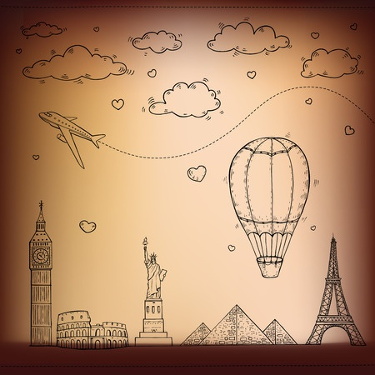Among the expats
 We have just returned from the ends of the earth, or one of them – Cape Leeuwin in Western Australia. During the five weeks we were away I talked to many dozens of people, but I would have failed the test I set myself as a young traveller because the overwhelming majority of people I talked to were not natives of the countries I was in, but “expats”, predominantly British, but also Irish, American and French inhabitants of the Gulf, South East Asia and Australia.
We have just returned from the ends of the earth, or one of them – Cape Leeuwin in Western Australia. During the five weeks we were away I talked to many dozens of people, but I would have failed the test I set myself as a young traveller because the overwhelming majority of people I talked to were not natives of the countries I was in, but “expats”, predominantly British, but also Irish, American and French inhabitants of the Gulf, South East Asia and Australia.
Having said that, the definition of an expat is clearly problematic. We tend to talk of foreigners in the UK as “immigrants”, irrespective of whether they intend to return to their country of birth or not. In fact, some intend to return and won’t, some have an open mind, but will and so on.
This is entirely a mirror image of what happens to the British abroad, whose movement over the long term has been on a uniquely large scale. The average number who left these shores in the twentieth century was approximately a third of a million each year; most did not return permanently. In a sense there is another, alternative, Britain out there, spread and clustered across the globe, the Britain of the expat, with its own culture and identity. Every member of this population has his or her story, of course, and they can be classified in different ways, but the most important distinction is between those who go to retire and those who go to work.
I have little experience of the former, but a great deal of the latter. The reason for this is that I am married to a lady from Teesside who has five brothers. As they were growing up, the traditional industries of the area (led by steel and chemicals) were collapsing, to be replaced largely by oil and gas and associated forms of construction and engineering associated with those products. That generally meant working for companies which would pay you a good deal more to go abroad than to stay at home even if there was a choice in the matter. My brothers-in-law have worked in more than two dozen countries and we have visited most of them. So we have a great deal of vicarious experience of expat life to add to one year of our own and I have formed some general conclusions about the principal characteristics of expat life.
The most obvious and attractive quality of the expat lifestyle is its sociability. Expats are clubbable: they make the effort. This extends a tradition with its origins in the Empire: outnumbered in an alien world, it was important to get together and to stick together. Sometimes, in life as I have experienced it in places like Mumbai and Singapore, for instance, things revolve around exactly the same clubs and watering holes as it did a hundred years ago in the days of Empire. Distinctions of class and nationality disappear in this clubbable world.
At the beginning of March we attended a celebration of St David’s day in Kuala Lumpur along with several hundred other people, very few of whom were actually Welsh. I sat on a table which was predominantly French and watched Frenchmen gallantly attempting the Welsh National Anthem, helped by subtitles (and previously experienced at rugby matches). My wife was serenaded (it was her birthday) by the “Malaysian Tom Jones”, who has been doing these events for many years.
The mechanisms of sociability are a much more positive attitude to making friends than people demonstrate “back home” and a willingness to join organisations you wouldn’t give a second thought to in your own country. The average expat stay in one location is frequently quoted as three years and that fits with our own experience. You have to get on with establishing contacts and making friends as soon as you arrive.
The shape of expat sociability differs markedly from that in a medium-sized English town such as the one where I live. It is more monolithic: whereas in my town there are all kinds of networks based on clubs, employment, churches, neighbourhoods and so on, which overlap randomly, in expat life in most places there is just one “community”. The tendency to monopoly determines many other features of life.
Page: 1 2

Leave a Reply